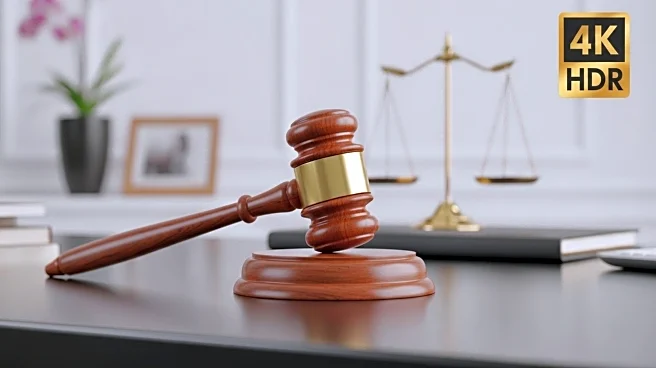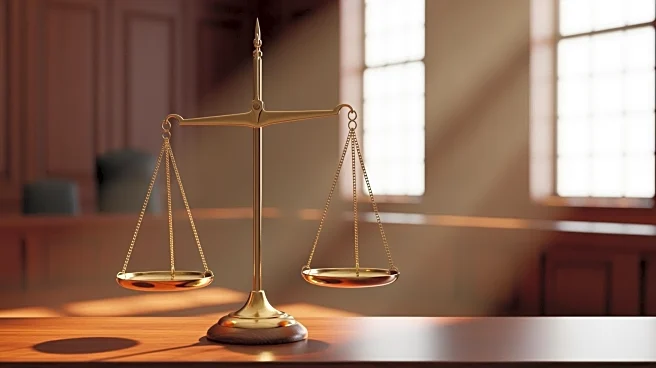What is the story about?
What's Happening?
Larry Kudlow, former economic adviser to President Trump, has publicly called for Federal Reserve board member Lisa Cook to be barred from attending the central bank's upcoming meeting. Kudlow's comments were made during an episode of 'Pod Force One,' where he alleged that Cook was involved in mortgage fraud. The allegations stem from claims that Cook falsely declared primary-residence status on two properties to secure favorable loan terms. Cook has filed a lawsuit against President Trump to prevent her firing, and a federal judge has issued a preliminary injunction allowing her to remain in office. The controversy has led to referrals to the Department of Justice for further investigation.
Why It's Important?
The situation surrounding Lisa Cook is significant as it highlights the ongoing tensions within the Federal Reserve and the broader implications for U.S. monetary policy. If Cook is removed, it could impact the decision-making process at the upcoming Federal Reserve meeting, where interest rates and other economic policies are set to be discussed. The allegations also raise questions about the integrity of public officials and the processes for appointing and removing Federal Reserve governors. This case could set a precedent for how such allegations are handled in the future, affecting public trust in financial institutions.
What's Next?
The Federal Reserve's meeting is scheduled for September 16 and 17, where key monetary policy decisions will be made. The outcome of Cook's lawsuit against President Trump will determine her participation in these discussions. Meanwhile, the Department of Justice may pursue further investigations into the mortgage fraud allegations. Political leaders and financial stakeholders will be closely monitoring the situation, as any changes in the Federal Reserve's composition could influence economic policy and market stability.
Beyond the Headlines
The case raises broader ethical and legal questions about the accountability of public officials and the criteria for their removal. The Federal Reserve Act of 1913 does not clearly define 'cause' for removal, which could lead to debates about executive power and due process rights. This situation may prompt discussions on revising the legal framework governing the Federal Reserve to ensure clarity and fairness in handling such cases.














